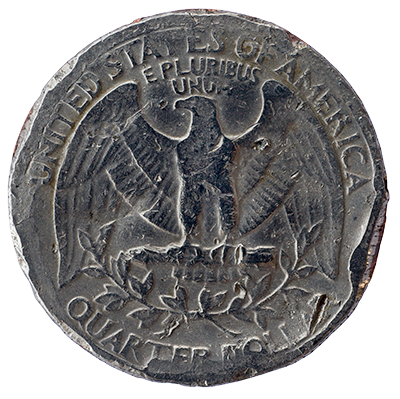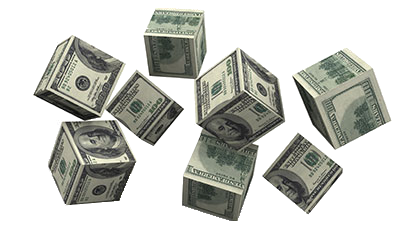First A History Lesson
At its core, the term relates to what society recognizes as a unit of money – or a unit of value. The system of creating currency and accounting for money has changed over time. Circa 3000 BC it also started with shells and grains (image the conversation: “Want a haircut? It costs 40 shells or half a bail of barley”). Around 1000 BC societies used standardized coins, usually made with precious metals. Around the 11th century societies began using a combination of coins and paper money (often exchangeable for precious metals at a fixed rate). In modern history, societies moved to fiat currencies, which are printed pieces of paper such as dollar bills. Money always needs a societally acceptable measurement system (called currency or legal tender).
The word “monetize” has deep ties to economic theory. As such, modern economists used the term to refer to the system of creating currency (a/k/a legal tender). Starting around the mid-1900s monetization referred to the process of converting specific financial instruments – such as treasury notes, bills and bonds - into legal tender. This not-so-coincidentally occurred around the time that the U.S. left the gold standard. Thus, as applied to the current system of creating money in the United States, it basically meant converting government-issued debt (an asset to the holder) into cash.

The Term Nowadays
The term “Monetize” was later adopted and arguably misused by business people. They liked the word so much that they used it to refer to the legal process of commercializing components of traditionally non-cash generating assets into additional sources of revenue. What? It’s a mouthful, so we understand why “Monetizing [something]” is a lot easier to say. To put more simply, “monetizing” is usually intended to mean the process of converting an aspect of any asset into cash.
Example: (1) Commercializing Components of: (2) Traditionally Non-Cash Generating Assets; (3) into Additional Sources of Revenue
To gain a better understanding of how business people use the word “monetizing”, let’s use a person’s home as an example:
The Term Nowadays

Most people think of owning real estate as a physical thing that belongs to them – usually the land, concrete foundation, studs, drywall, pluming, roof, and other parts. But there is another way to look at owning real estate: If you own and live in your home, then you have the right to be in it (the right to possess), to paint it a different color (the right to control), invite some people over but not others (the right to exclude), and of course to watch TV in the family room (the right to enjoy).
That’s also the way the law looks at it. Under the law, “owning” an asset is really just ownership of one or more rights (called a bundle of rights). Yes, that right - the law recognizes “ownership” as a set of rights specific to an asset (e.g., the right to possess, control, exclude, enjoy, use, etcetera) and not the physical thing itself.
Let’s use our example to merge the law and the business transaction to explain it. As a home owner, you can sell or rent away some or all of those rights. For example, you may rent out a spare bedroom. In which case, you have:Commercialized a component of the home by renting out a room (i.e., given the right to possess that portion of your home).
- It’s a traditionally non-cash generating asset because people usually buy homes to live in and not for the purpose of renting out rooms.
- It’s an additional source of revenue, because one collects rent checks that they would not ordinarily receive.
So, I Get It. What Else Can Be Monetized?
The idea of “monetizing” has become very popular. Just about everything can be monetized in theory. Other assets, like machinery, vehicles, intellectual property (an intangible asset), or even a logical business unit can be monetized. One can sell or rent any divisible part of the bundle of rights. Instead of using terms like “sell” or “rent,” the vernacular might change (e.g., assign, license, etc.), but the basic concept remains.
This Seems Basic. What’s the Catch?
The more unique the item, the more one must be concerned about the implications. Contract term, laws, regulations, and other factors can affect an owner’s rights. In more extreme cases, a lack of understanding of how one’s rights function can have a devastating effect.
In the context of intellectual property, monetization means converting one or more rights to a copyright, patent, trademark, or trade secret into a source of revenue. However, missteps can cause the permanent loss of rights and revenue.
For some entities, particularly those that rely on technological innovation, monetization of intellectual property is their primary source of revenue. It is carefully integrated into their business model and is crucial for their success. For other entities, monetization of intellectual property serves as a secondary stream of revenue to strengthen overall profits and diversify risk. Handled correctly, monetization of intellectual property can be a powerful and lucrative tool to facilitate the growth of an entity. Whether pursued as a primary or ancillary source of revenue, monetizing intellectual property hinges on a proper strategy.
The Devil is in the Details
Successfully and sustainably monetizing a copyright, trademark, patent or trade secret requires careful consideration. Converting intellectual property into maximum revenue requires a deep understanding of the many, many factors.
Monetization requires careful planning to develop a successful, overarching strategy that is specifically tailored to your business sector(s). Though the concept of monetization is simple, the successful conversion of one or more asset rights into revenue requires the calculated employment of the precise tools at the appropriate time. Proper understanding of the utility, strength and scope of each type of IP, and how each or all can be incorporated into your businesses overall IP strategy is key.
We’re Here to Help
Consulting with an experienced Nexio attorney can help you through the process of navigating the complexities of monetizing your existing intellectual property and/or the intellectual property you hope to acquire. The attorneys at Nexio Law Firm are committed to helping our clients achieve their objectives. We can be reached at (949) 478-6830 or complete the contact form and we’ll be in touch soon.